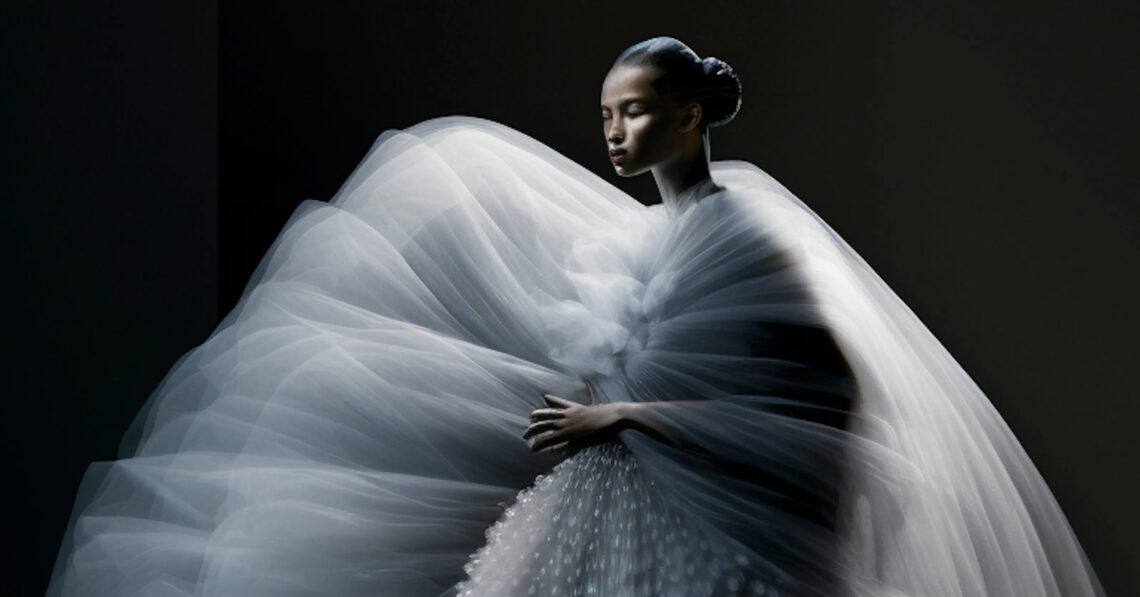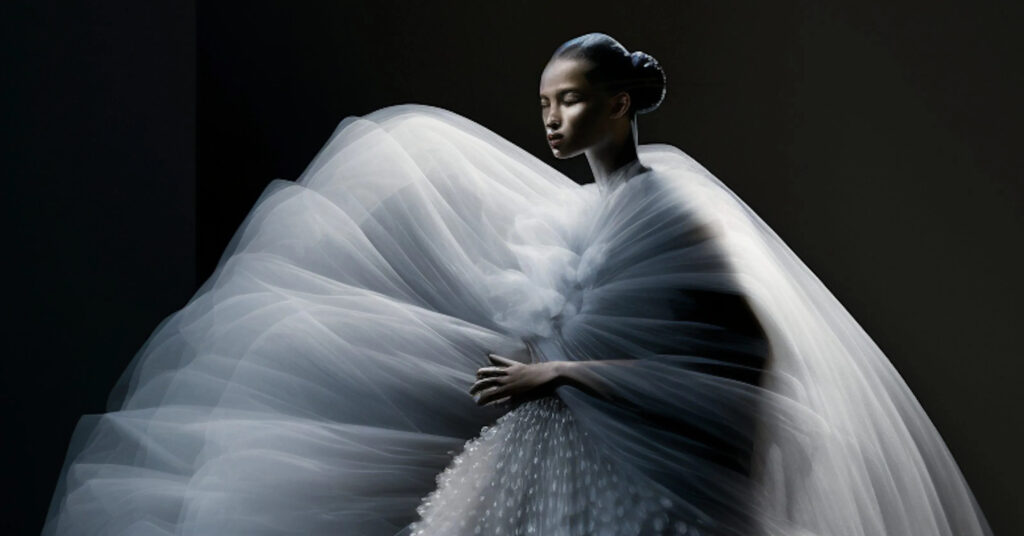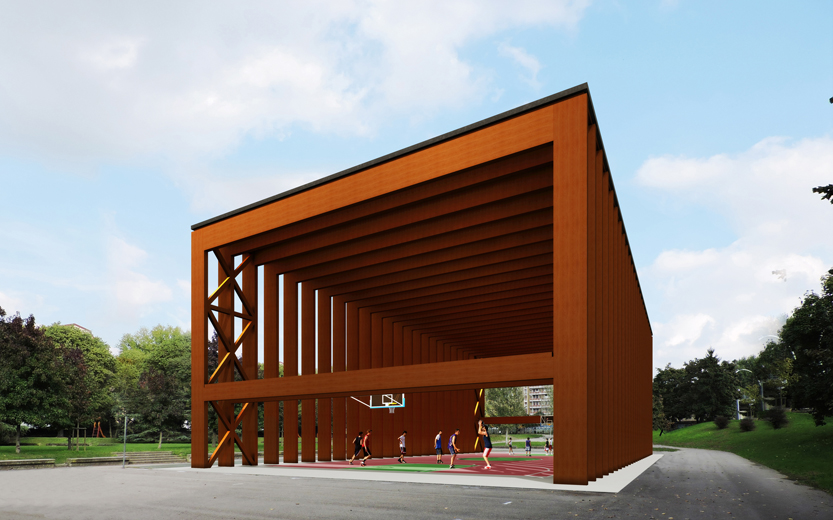While still in its early stages, generative AI has the potential to help fashion businesses become more productive, get to market faster and enhance customer satisfaction.
For those still in the dark, generative AI refers to machine learning algorithms able to create new content. Trained on a sufficient number of examples, these algorithms recognize patterns and structures in data and create new examples of their own. Some tools, such as DALL-E 2, produce images. Others, such as ChatGPT, can generate text.
While the fashion industry has already teamed up with basic AI and other technologies like the metaverse, NFTs and augmented reality, little it has experienced with generative AI due to its recent availability and some issues and bugs. However, many experts believe that this emerging technology will reshape the future of the fashion industry, becoming a game changer in many of its aspects. According to McKinsey analysis, in the next three to five years, generative AI could add up between $150 and $275 billion to the operating profits of the apparel, fashion and luxury sectors.
Generative AI is still in its infancy, but it is already beginning to shake up the whole fashion value chain. In particular, changes are happening in areas such as merchandising and product, supply chain and logistics, marketing, digital commerce and consumer experience, store operations and organization.This article aims to offer tangible examples showcasing the application of generative AI in various fields of the fashion industry, emphasizing that this emerging technology is actively reshaping the entire ecosystem.
Merchandising and product
Rather than depending exclusively on trend reports and market analysis, both fast fashion and luxury brands’ creative directors can use generative AI for designing the upcoming season’s collection. At the same time, designers can use this new technology to convert sketches, mood boards and descriptions into an array of designs, allowing them to play with an enormous variety of styles and looks. Generative AI can even personalize products for individual consumers on a large scale (for example, eyewear products can be designed for individuals by using facial recognition technology powered by generative AI).
Revolve is a company that has actively embraced this transformation. In April, the online retailer joined forces with Maison Meta, an AI-centric creative agency, to pioneer the inaugural AI Fashion Week in New York.
During the event, Revolve organized a contest, committing to bring the top three collections to life as physical products. Fast forward to November 3rd, and the first drop of tangible garments is now available. Crafted with the assistance of AI image generators like Midjourney and Stable Diffusion, the collection features 10 to 12 pieces from each winner, encompassing a mix of basic and more intricate garments.
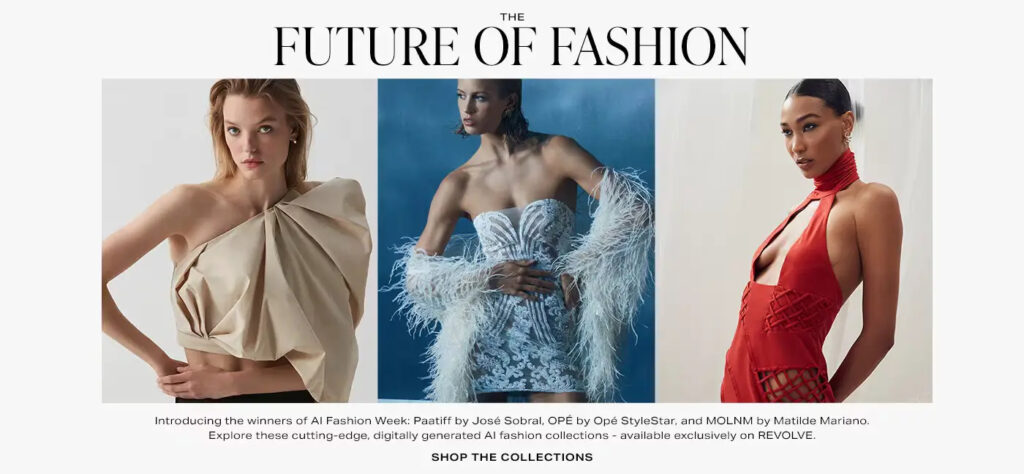
Marketing
When it comes to marketing, generative AI can automate consumer segmentation at scale to tailor marketing initiatives, in addition to generate personalized marketing content based on unstructured data from consumer profiles and community insights. This is a great opportunity as companies excelling at personalization increase revenues by 40%, according to McKinsey research.
Back in 2021, Mytheresa was already using advanced analytics and AI to predict customers’ lifetime value and gain better insight into which shoppers were worth investing in. This was possible thanks to much richer and more complex data that could let the company make better-informed decisions about where to direct its resources to get the best return on investment. The CEO of Mytheresa explained: “If the first purchase is a high-value, ready-to-wear item, much higher correlation to future spend levels than if the first item is a €200 pair of sneakers”. Shoppers flagged as high potential were supposed to enjoy exclusive access to new products, priority shipping and faster customer service response. Simultaneously, the gathered data informed Mytheresa about customer preferences, enabling tailored services and precise targeting of communications (emails, texts, push notifications).
Digital commerce and consumer experience
Generative AI has also many potential applications when it comes to sales and consumer experience. In particular, this emerging technology can personalize online consumer journey and offers (like web pages or product descriptions) based on individual consumer profiles, in addition to tailor virtual product try-on. Another important application is related to the use of intelligent AI agents, like conversational chatbots and virtual assistants, to manage advanced consumer inquiries.
In April, Zalando announced the launch of a virtual fashion assistant powered by ChatGPT on its website and apps. This chatbot will allow customers to navigate in a more intuitive and natural way, enhancing their online shopping experience. According to Zalando, if a customer asks, “What should I wear for a wedding in Santorini in July?” the fashion assistant will recommend clothing based on that input, taking into account the formal occasion and the expected hot weather. The fashion e-tailer also added that this could be combined in the future with customer preferences, such as the brands they follow and products available in their sizes, to offer a more tailored product selection.
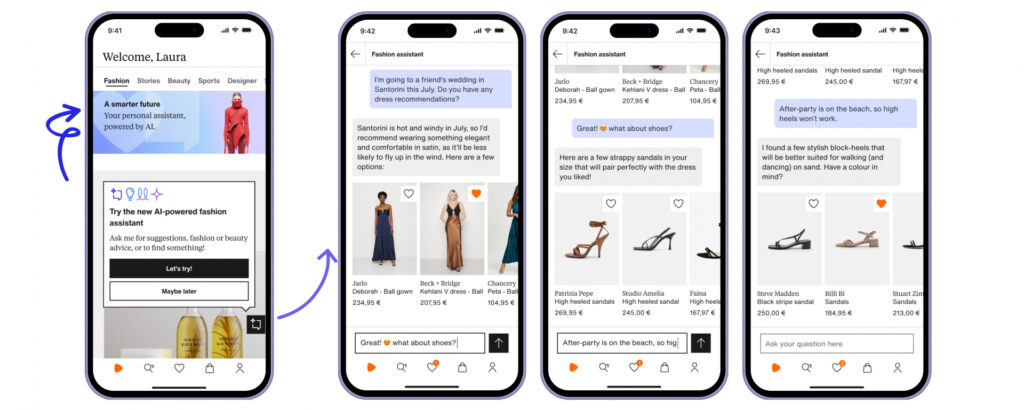
By Corinna Povia
Sources:
Generative AI: Unlocking the future of fashion, McKinsey & Company, 2023
Revolve Is Selling Clothes Designed by AI, The Business of Fashion, 2023
Zalando to launch virtual fashion assistant powered by ChatGPT, Fashion United, 2023
The Technology Turning New Shoppers Into Loyal Customers, The Business of Fashion, 2021

